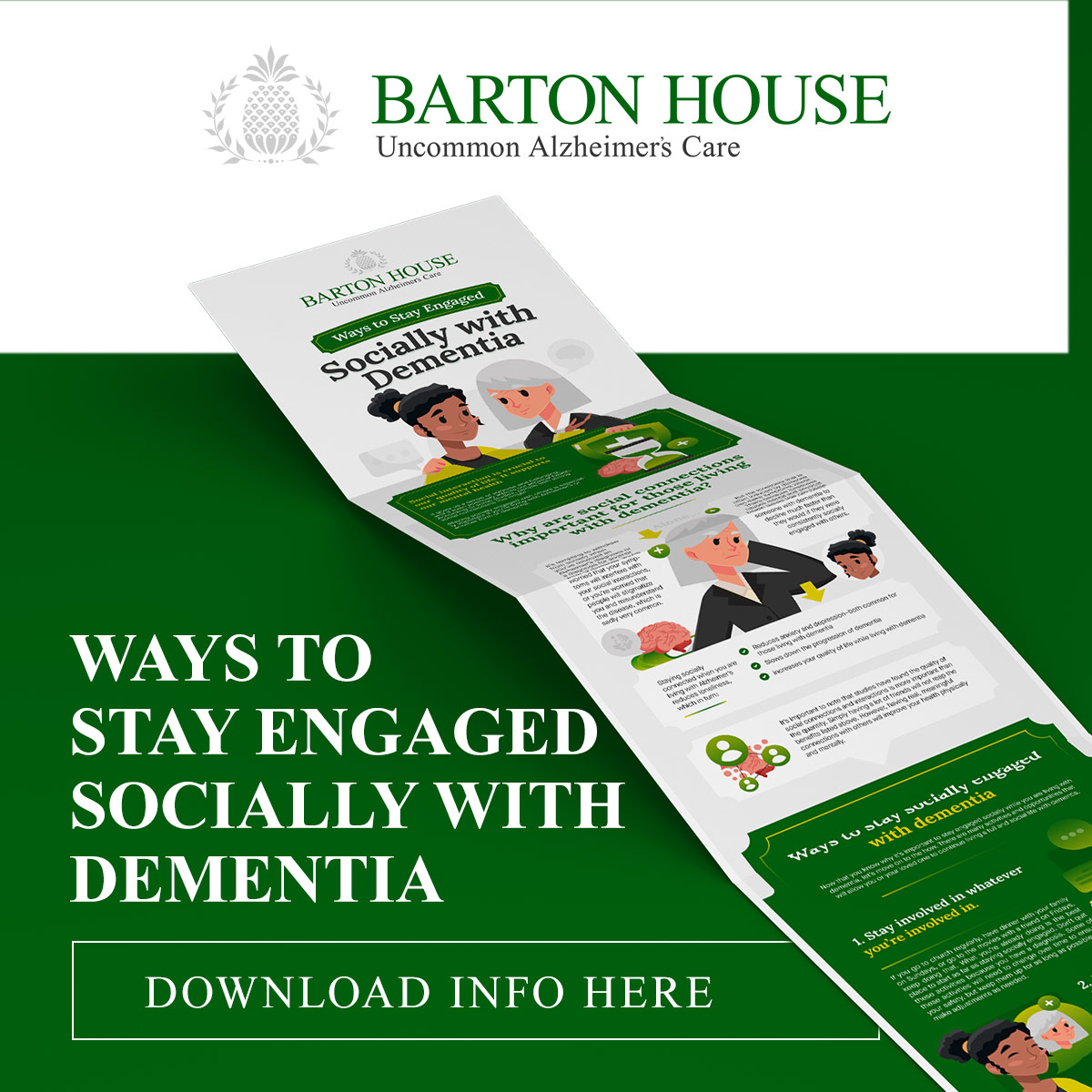Are Nursing Homes Good for Someone with Dementia?

When your loved one is living with dementia, long-term care is a crucial conversation.
Once your loved one can no longer take care of herself, what will you do?
Who will care for her?
These decisions can be overwhelming, and navigating the long-term care facility landscape can feel daunting.
In this article, I will address whether a nursing home is a good long-term care option for your loved one who is living with dementia and how it differs from a memory care facility.
Share this Infographic Image On Your Site
<p><strong>Please include attribution to https://barton-house.com/ with this graphic.</strong><br><br><a href="https://barton-house.com/ways-to-stay-engaged-socially-with-dementia/"><img src="https://barton-house.com/wp-content/uploads/2022/11/barton_house_infographic_Ways_to_Stay-Engage_socially_with_dementia.jpg" alt="Ways to Stay Engaged Socially with Dementia" width="461px"></a></p>What is a nursing home?
Nursing homes, also known as skilled nursing facilities or convalescent homes, offer care for senior adults who can’t care for themselves independently. This is typically due to chronic illness or a health problem that has caused them to be non-ambulatory—unable to walk from room to room or evacuate during a potential emergency.
Nursing homes offer long-term and short-term care. Residents who need round-the-clock care live in nursing homes as their primary residence while older adults who are rehabbing after surgery or a hospital stay can stay at a nursing home while they recover.
Staff at nursing homes are trained in medical care as well as assisting with activities of daily living (ADLs) such as eating, getting dressed and using the bathroom. Nursing homes typically have 50 to 100 residents. Privacy is limited since many residents need hands-on care. In addition to daily meals and assistance with ADLs, nursing homes also offer medication management, IV therapy, respiratory therapy as well as therapeutic services such as physical therapy, speech therapy and occupational therapy.
Nursing homes also offer a range of activities for residents such as movies, music and games. They offer 24/7 security in the building to keep residents safe and often have outdoor grounds available to residents who are able to walk or go outside in a wheelchair.
If your loved one has Alzheimer’s disease, mid- to late-stage dementia, or other memory issues as well as a chronic illness or disease that has left him bedridden or needing hospital-level care, a nursing home could be a good fit for him. In addition, if your loved one needs 24-hour supervision due to the progression of his disease, a nursing home might be a good option.
It’s important to note that a nursing home facility will not necessarily improve or worsen your loved one’s condition. According to this study, nursing home residents who were living with dementia did no better and no worse than those who were not living in a nursing home, meaning a nursing home didn’t seem to have a positive or negative effect on their disease.
Nursing homes are not memory care facilities
Nursing homes do not provide the same type of care as memory care facilities, which cater to those who are living with dementia and Alzheimer’s disease.
Nursing home staff is not required to be trained in memory care. Many won’t be specially trained on how to deal with specific memory loss symptoms such as agitation, disorientation, sundown syndrome, etc. If your loved one has memory loss, a memory care facility is often the best option.
Quality of life
When it comes to long-term care for your loved one, his or her quality of life is your top priority. Research tells us that several factors contribute to a better quality of life for someone who is living with dementia or Alzheimer’s, such as:
These are good points to consider when selecting a long-term care facility for your loved one. Which one will provide the most opportunities for social connection and relationships?
Which ones focus on consistent meals and hydration for every resident?
What kind of activities do they offer?
Are there opportunities to go outside and move around freely?
Choose a caregiving model that will improve your loved one’s quality of life.






